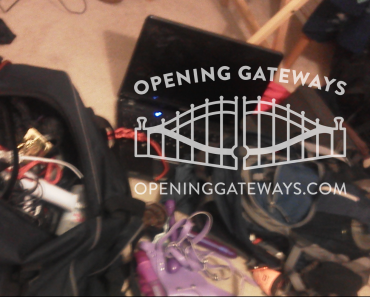“Aw, come on, smile, it’s a compliment.”
“I’m just being nice.”
“I was being friendly.”
Heaven give me patience.
Some time ago, I asked one of my guy friends about this tendency for assholes to cloak objectification as a compliment. It was so blatantly insulting to me that I simply couldn’t believe that these guys were so stupid as to believe what they were saying. I figured they knew they were being assholes and were just trying to cover their asses by coming up with a bullshit excuse. But my friend had a different thought. “You know,” he said, “if I didn’t know better, I might think it was a compliment, simply because I’d love to have a strange lady come up to me in public and call me sexy.”
I could feel my spine stiffening. Saying anything positive about catcalling seemed mildly blasphemous. But I was magnanimous and offered him the chance to explain himself before I crucified him on the point of feminist wit and mixed metaphors. “You’d probably think differently if you had it every day,” I grumbled.
“Well, of course. But I don’t have it every day.”
Light. Bulb.
Maybe I was right and these guys are just trying to make themselves feel better. But there are definitely a few who really think they’re giving compliments. What they’re lacking isn’t brain cells. It’s empathy.
Empathy. The ability to, as Atticus famously said, “climb into someone’s skin and walk around in it” (To Kill a Mockingbird). The ability to actually feel the way another person does or might feel.
The famous child psychologist Piaget theorized that children experience something called egocentrism, a phenomenon in which the child believes that how s/he sees things is the same way everyone sees things. He demonstrated this by arranging three differently sized model mountains on a table, sitting a child on one side, and asking the child what someone sitting on another side would see. Younger children invariably picked the picture that showed what they themselves saw, rather than what the other person would see. While this specific test looked at spatial reasoning, egocentrism applies to a variety of areas; if a child knows something, s/he assumes everyone knows it, if s/he likes something, s/he is surprised to find out that someone else doesn’t.
In the movie Tootsie, Dustin Hoffman played an out-of-work actor who, in an effort to escape his own bad reputation, creates a female persona to get a job. In an interview, Hoffman discussed what it was like to literally walk around in a woman’s shoes. The inspiration for the movie was a question from a friend. “All sexes have asked themselves the question ‘what would it feel like to be the opposite sex.’ His question was different. ‘If you were born a woman, how would you be different?’” Hoffman’s epiphany was that, while he would have been a very interesting woman, even with the best makeup, he looked like the kind of woman he himself would pass up at a party. And the revelation made him cry.

Empathy isn’t something we’re born with, but it’s something that is essential for a peaceful society. People with no empathy are colloquially known as psychopaths. The International Statistical Classification of Diseases and Related Health Problems, the World Health Organization’s manual to all things health, uses the label Antisocial Personality Disorder. This name is slightly less ear-catching, but serves the same purpose, as one of the diagnostic criteria is “callous unconcern for the feelings of others.” People who qualify for these labels are often deemed dangerous and are locked up for the safety of the public.
So back to you, jerk who just hooted at my ass. No, it was not a compliment. And the fact that you think so displays your lack of empathy. You might want to look into that.






